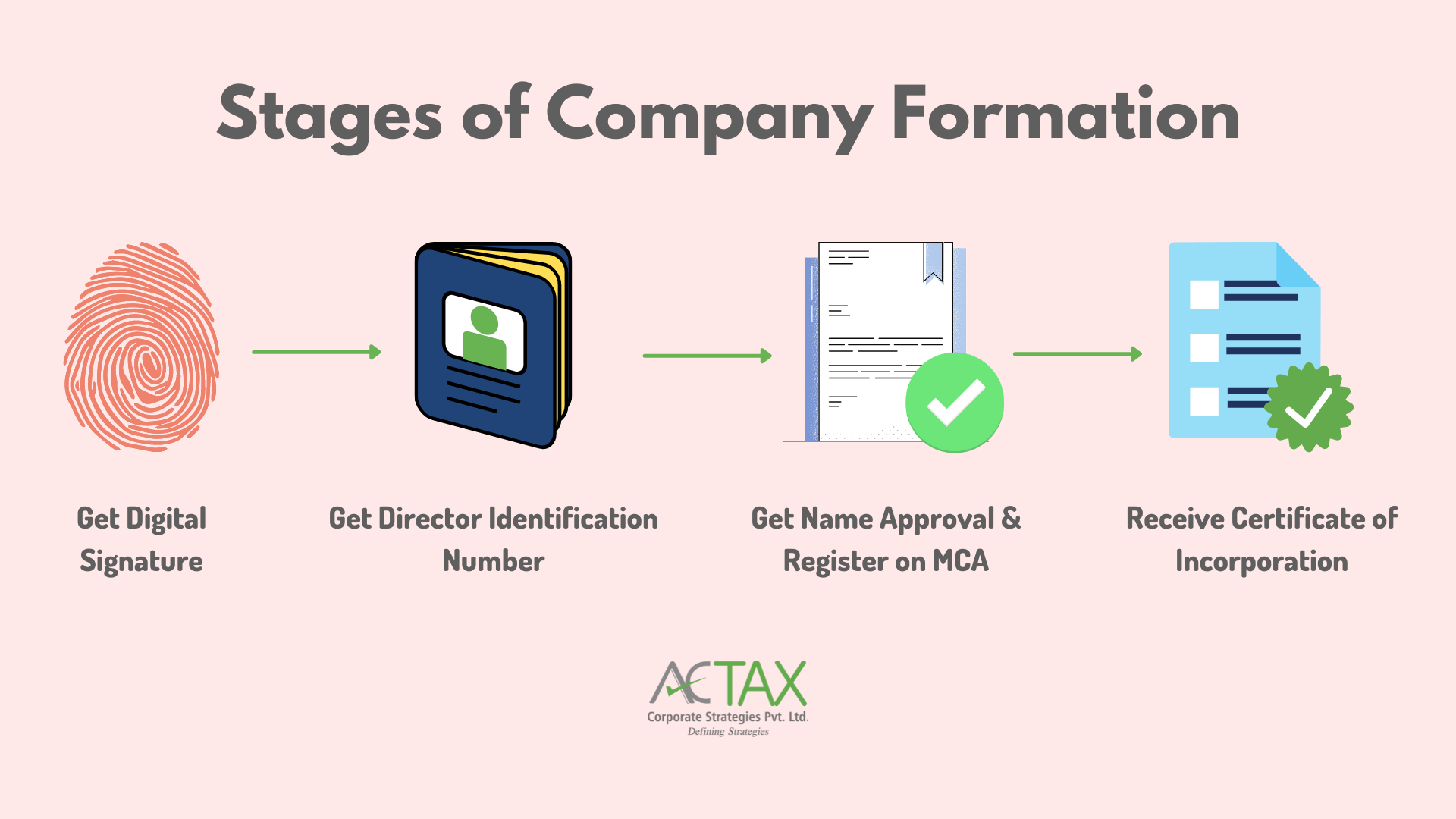Incorporating the Commercial Registration Electronic System into Your Company Formation Method
Incorporating the Commercial Registration Electronic System into Your Company Formation Method
Blog Article
Navigating the Complicated World of Business Formation: Insights and Methods
As business owners set out to browse the detailed world of company development, it becomes critical to outfit oneself with a deep understanding of the intricate nuances that define the process. From choosing the most suitable company structure to guaranteeing stringent lawful compliance and devising effective tax planning techniques, the course to producing a successful service entity is riddled with complexities.
Company Framework Choice
In the world of company formation, the vital choice of selecting the suitable organization structure lays the structure for the entity's legal and operational framework. The option of business framework substantially affects numerous elements of the organization, consisting of taxation, obligation, administration control, and conformity needs. Entrepreneurs should very carefully examine the readily available options, such as sole proprietorship, partnership, restricted obligation company (LLC), or firm, to identify the most suitable structure that lines up with their business objectives and scenarios.
One typical structure is the single proprietorship, where the proprietor and the company are thought about the very same lawful entity - company formation. This simpleness enables for simplicity of development and full control by the owner; however, it additionally involves unlimited personal liability and prospective difficulties in increasing capital. Partnerships, on the various other hand, involve two or more people sharing losses and revenues. While partnerships supply shared decision-making and resource merging, companions are personally liable for business's obligations and financial debts. Understanding the subtleties of each company framework is crucial in making a notified decision that establishes a strong foundation for the business's future success.
Legal Compliance Basics
With the structure of an ideal service structure in position, ensuring lawful conformity fundamentals comes to be paramount for guarding the entity's operations and maintaining regulative adherence. Legal compliance is important for firms to run within the boundaries of the legislation and stay clear of prospective charges or legal problems. Secret lawful compliance fundamentals consist of obtaining the required permits and licenses, sticking to tax obligation guidelines, implementing correct information protection steps, and abiding by labor legislations. Failure to conform with lawful needs can cause fines, suits, reputational damages, and even the closure of business.
To guarantee legal compliance, business ought to frequently review and upgrade their policies and procedures to mirror any kind of adjustments in policies. Looking for lawful counsel or compliance professionals can even more assist business browse the intricate lawful landscape and stay up to date with developing regulations.
Tax Obligation Preparation Considerations

Furthermore, tax obligation preparation should include techniques to benefit from offered tax reductions, rewards, and credit scores. By tactically timing revenue and expenses, companies can possibly decrease their taxable earnings and general tax problem. It is also essential to remain informed regarding adjustments in tax obligation regulations that might influence the organization, adjusting methods appropriately to remain tax-efficient.
In addition, worldwide tax preparation considerations may develop for companies operating throughout borders, entailing complexities such as transfer pricing and international tax credit reports - company formation. Seeking advice from tax professionals can assist navigate these ins and outs and develop a comprehensive tax obligation strategy tailored to the firm's requirements
Strategic Financial Management
Purposefully handling finances is a basic element of guiding a business in the direction of sustainable development and profitability. Reliable financial monitoring entails an extensive method to supervising a company's monetary resources, financial investments, and general economic wellness. One essential element of critical financial administration is budgeting. By developing detailed budget plans that straighten with the firm's goals and goals, companies can designate sources efficiently and track performance against monetary targets.

An additional critical aspect is cash money circulation monitoring. Monitoring cash inflows and outflows, taking care of operating resources successfully, and making certain enough liquidity are crucial for the everyday operations and long-lasting practicality of a company. Additionally, strategic economic monitoring includes danger assessment and mitigation strategies. By recognizing monetary dangers such as market volatility, credit risks, or governing changes, companies can proactively apply actions to guard their economic stability.
Additionally, financial reporting and evaluation play an important duty in calculated decision-making. By generating precise financial reports and performing extensive evaluation, businesses can get valuable insights right into their economic performance, determine locations for improvement, and make notified critical choices that drive sustainable development and profitability.
Growth and Growth Approaches
To push a firm towards enhanced market existence and profitability, tactical growth and growth approaches must be carefully created and applied. One reliable strategy for growth is diversification, where a business goes into brand-new markets or deals brand-new product and services to take advantage of and decrease dangers on emerging chances. One more method is market penetration, focusing on enhancing market show existing products in present markets with aggressive marketing or pricing techniques. Additionally, tactical partnerships or collaborations with various other organizations can give accessibility to brand-new sources, innovations, or markets that speed up growth. Moreover, go to this website mergers and acquisitions can be critical for increasing market reach, obtaining competitive advantages, or acquiring key skill. It is essential for companies to perform complete marketing research, financial evaluation, and danger assessments prior to starting any development technique to ensure sustainability and success. By meticulously preparing and executing development techniques, firms can navigate the intricacies of growth while optimizing value for stakeholders.

Conclusion
Finally, navigating the intricacies of business formation calls for cautious consideration of organization structure, lawful conformity, tax preparation, financial management, and development strategies. By purposefully choosing the right service structure, making certain lawful compliance, preparing for tax obligations, handling financial resources efficiently, and check my source applying development approaches, companies can set themselves up for success in the affordable organization atmosphere. It is important for businesses to come close to business formation with a tactical and thorough state of mind to accomplish long-lasting success.
In the world of firm development, the vital decision of selecting the suitable service structure lays the foundation for the entity's operational and lawful framework. Entrepreneurs have to very carefully examine the offered alternatives, such as single proprietorship, collaboration, limited responsibility company (LLC), or company, to establish the most ideal framework that Learn More straightens with their business goals and scenarios.
By developing comprehensive budget plans that straighten with the firm's purposes and objectives, organizations can assign sources successfully and track performance versus economic targets.
In verdict, navigating the complexities of business formation calls for mindful consideration of service framework, legal compliance, tax planning, economic management, and growth methods. By purposefully picking the ideal service structure, making certain lawful compliance, intending for taxes, taking care of finances properly, and applying growth techniques, firms can establish themselves up for success in the affordable business setting.
Report this page